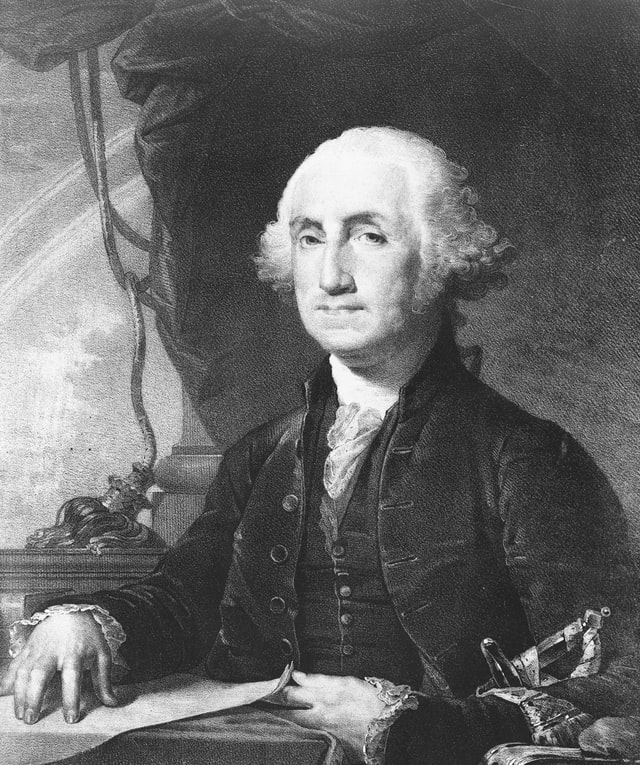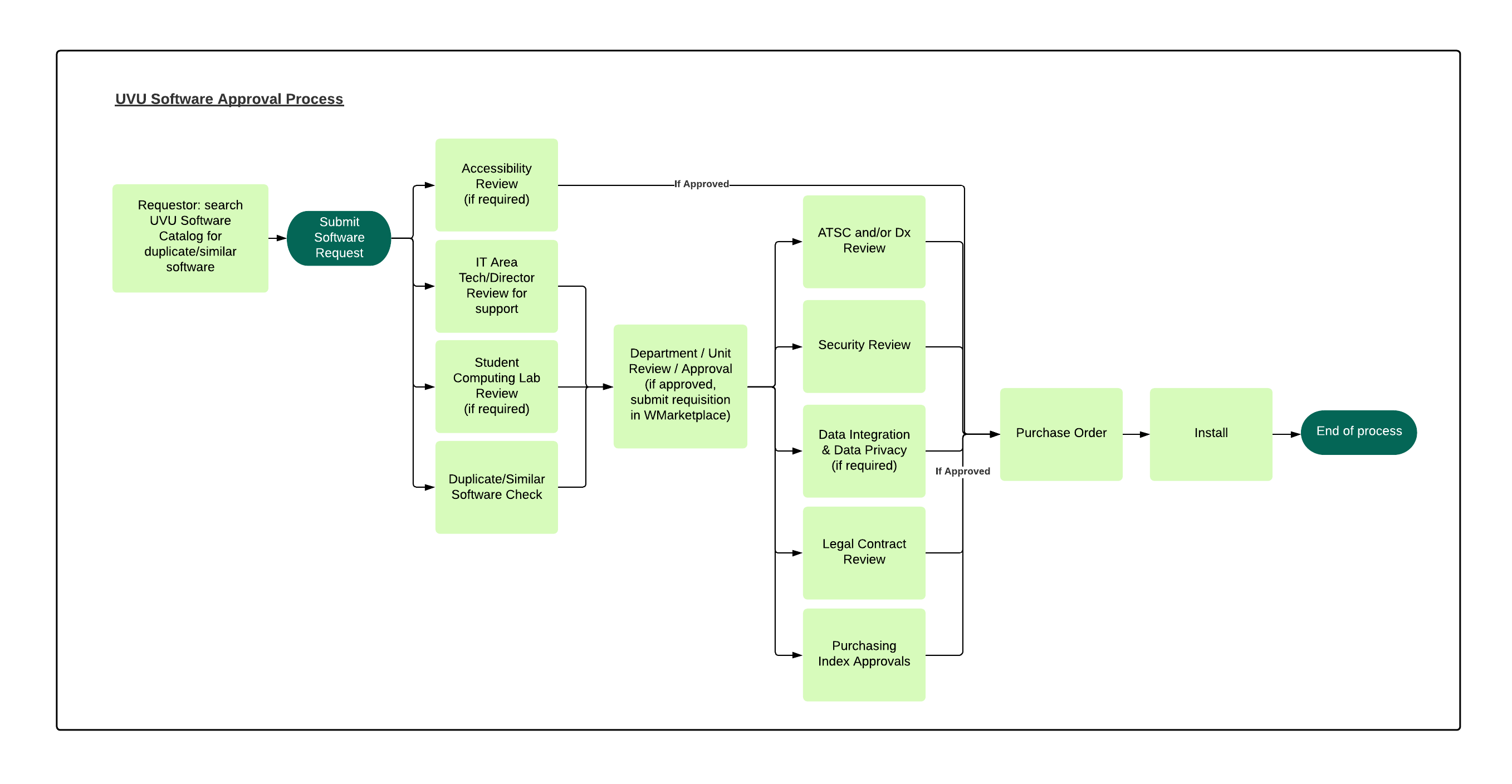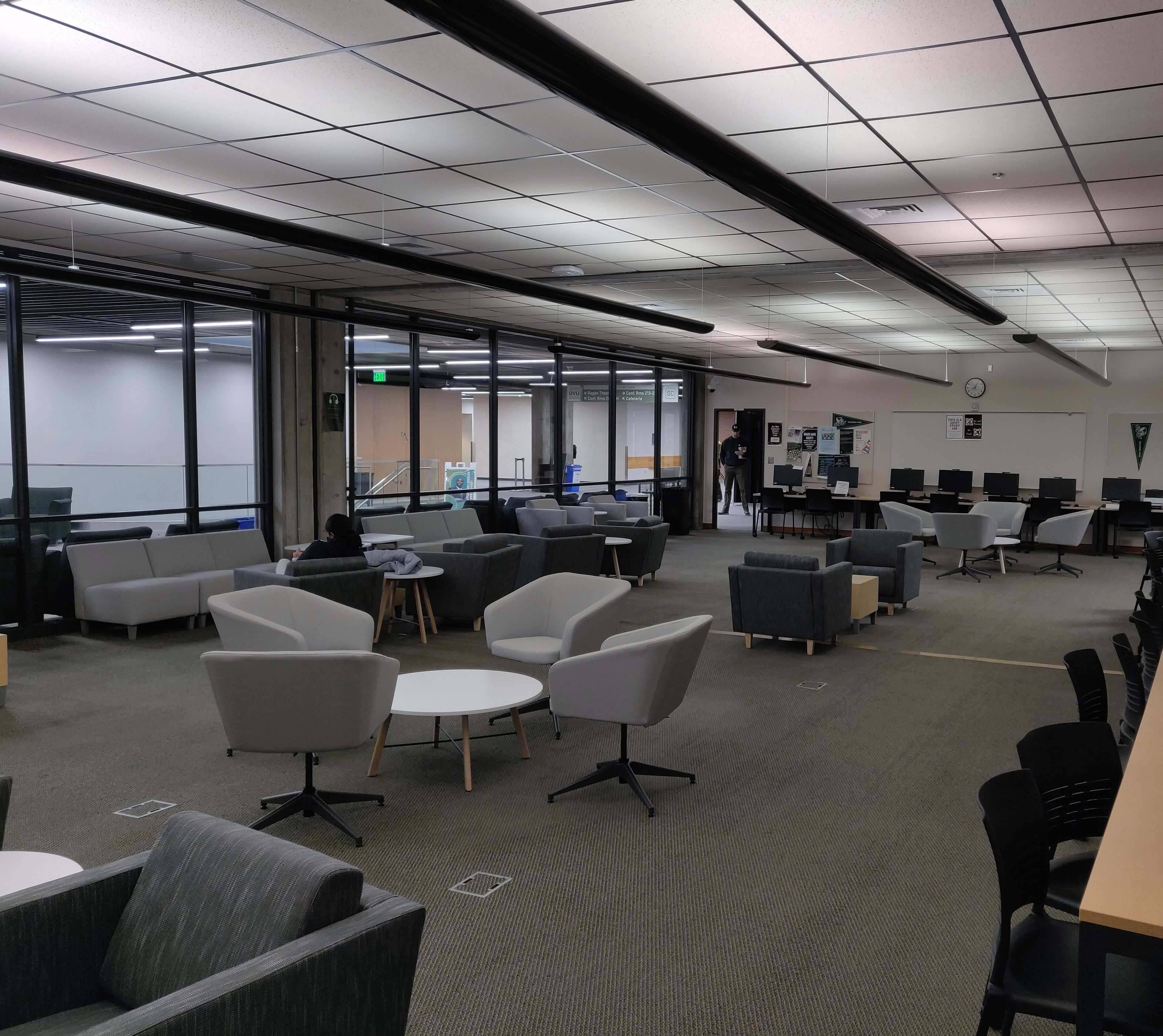


DX HALF-TIME LIVESTREAM
- Ask questions directly and get them answered
- Hear up-to-date news about projects, changes, events, and more
- Recognize team members for their great accomplishments
- Ponder the quote of the week
- Learn the stat of the week
- Laugh at the plentiful dad jokes
DX TEAM RECOGNITION
To nominate someone, fill out this form or navigate to the OIT - Public team in Teams, enter the Half-Time channel, and select the Team Recognition tab from the top menu. Remember, nominations must be submitted by 5:00 PM on Tuesday to be eligible for the following Wednesday's Half-Time.
WOLVERINE SIGHTINGS
UVU'S GOODWILL ASSOCIATION
- Sending get-well floral baskets for hospital stays greater than 3 days (typically for life-threatening illnesses).
- Sending bereavement floral baskets to employees who have lost a mother, father, child, in-law, or spouse.

CHINESE NEW YEAR

GROUNDHOG DAY

Wednesday, February 2, is Groundhog Day. This unique tradition has been observed in the United States since 1886. If you're curious, this article details the history of Groundhog Day.
VALENTINE'S DAY

Monday, February 14, is Valentine's Day. While there are several contested theories about the origins of Valentine's day, everyone agrees that it's the perfect time to show your love and appreciation for the people you love.
PRESIDENTS' DAY


ADAPTING OUR PRODUCT FOCUS
In 1849, French writer Jean-Baptiste Alphonse Karr wrote, "plus ça change, plus c'est
la même chose;" or in English, "the more things change, the more they stay the same."
Sometimes, in situations where there appears to be a meaningful change, many underlying
fundamentals remain the same.
I've been pondering this concept as Dx has started to transition from a "project-based" organization to a "product-based" organization. This type of transition is said to be very difficult for traditional service organizations. Typically, the attitude of a service organization is that "transactional service events and projects are how we get things done," and the primary goal is to check another item off the to-do list, rather than to increase the value derived by the people depending on the organization's outputs.
While that attitude exists in some of our operations, I don't think it's dominant. As I learn more about product management and think about how we've traditionally provided value to UVU, I've been questioning if we ever really were a project-focused organization.
I think back to my sysadmin days, specifically to the email system I managed from the mid-1990s until about 2010. Back then, I didn't think in terms of projects; I thought in terms of how I could provide better services, a product that the email system users enjoyed more and received more value from. In effect, though not in title, I was the product manager for the email system.
I recognize the same mindset and efforts for "products" like the network, banner, and many others. Sure, we ran projects to accomplish the upgrades needed, and we didn't ever really call what we were doing product management, but as unnamed product owners, we cared about the products we provided to our customers. Over time, the university and the number of systems grew by leaps and bounds; we divided and subdivided our efforts to manage it all. We had so many things to do and so little time that we poured the minimal amount of energy into any given task.
Although spreading ourselves too thin is not ideal, I think this behavior results from our fundamental drive to serve our customers in a product-based way, rather than a project-based way. The good news is that we already have some of the key parts of a product-focused organization down. As we adopt—or rather, adapt to—our new product management focus, we will have a lot to learn. But we will bring with us the deep ownership and care that we've always had for our customers and the value we provide to them. To our benefit, we'll be asked and empowered to limit our focus to a few priority products for a period of time. We'll be able to spend the energies we have on strategically important products and services, rather than having all our time and efforts monopolized by minutiae.
Will it be hard to let some of the products stagnate for a while? Yes, because we care about them. Will we do the basics to keep them running and fix bugs? Yes. Will we eventually turn our focus back to those products? Of course.
As we focus our efforts on the most important products, we will be able to make improvements we never dreamed of in the past. We'll spend time with stakeholders and customers to learn how to create value and delight for them and then develop roadmaps that meet those specifications. We'll take opportunities to improve our products; then, using feedback from our testing, we'll iterate to drive even more value. Best of all, we'll be able to provide what our customers need much more quickly than we can now.
Yes, we will be making improvements to the way we do things, but in the end, transitioning to a product-based organization won't be as drastic as it sounds. We are naturally doing much of what is entailed in product management; we'll just change some of the terms we use and build in some structure as we make this transition. In a sense, the more things change in Dx, the more they will stay the same. I'm looking forward to this transition.
COLLEGE NAVIGATOR
College Navigator is an online tool that provides education statistics for universities
throughout the United States. You can search for a university by name, state, institution
type, or program. After selecting a university, you can find information about its
tuition, financial aid, enrollment, graduation rates, accreditation, and more. There
are tabs for different years and tabs that show information about sports. You can
pin schools to a list of favorites, which makes comparing schools easy and efficient.
College Navigator provides access to an overview of university statistics without
requiring the user to search multiple sites. For easy access to university statistics,
go to the College Navigator website at https://nces.ed.gov/collegenavigator.
ORGANIZATIONAL ADJUSTMENTS
Troy Martin, Associate VP/CTO of OIT
Happy 2022! I would like to thank you for all of your great efforts to make the start
of this semester non-eventful and delightful to students and faculty! While we had
a couple of minor hiccups, overall, everything seems to have gone smoothly thus far
(knock on wood). I also hope that this message finds everyone healthy as we navigate
omicron and a new, extremely contagious wave of this two-year-long pandemic. Please
stay safe and exercise good judgment as you interact with others in person. If you
are ill, please practice social distancing and find ways to stay connected virtually.
As the Digital Transformation division and Office of IT continue to evolve and find
ways to improve our ability to provide Exceptional Care, Accountability, and Results
to our campus partners, we will announce occasional organizational adjustments and
make new assignments. As many of you are aware, last year we established an Architecture
Council for Digital Transformation and released our first version of the Enterprise
Architecture Guide (EAG). This group and the EAG document inform standards across
our product family. An Enterprise Architect’s role is to manage these architectures
and work with development teams to ensure that what is being designed and built comply
with our established architectures. Reed Warner has accepted the assignment to be
the Enterprise Architect at UVU and will report directly to me. Reed will continue
to work as our liaison with Microsoft and assist with several major projects currently
underway.
With Reed’s new assignment, we are excited to announce that Jim Condie will now be
the director for Operations and the Enterprise Systems Administration team. Having
these two groups together will allow us to continue to build and develop a DevOps
culture. Jim has a great vision for what DevOps means at UVU, and we have every confidence
that these teams will continue to be successful and strive for continuous improvement.
These departments will continue to function as currently organized while the teams
and leaders learn from each other and later determine a final structure.
Lastly, we have asked Bobby Lott to assume responsibility for managing the Atlassian
suite of products and continuing to build out ITSM processes. Special thanks to Jim
and his team, who have done a stellar job thus far at helping us get JSM and other
tools working to manage important processes like Change, Problem, and Incident. Bobby
is uniquely qualified to take the baton and find ways to improve these processes and
integrate them with a Virtual Assistant.
Finally, thank you all for the great work and dedication you provide to make UVU a
great place to work!
GET OUT OF DEBT WITH RUNBOOKS
One common New Year resolution is to reduce or get out of debt. Debt erodes our ability
to focus on what truly matters. It is a whirlwind that can consume any upfront value
one may have gotten from expediting processes.
IT can create debt by shortcutting best practices and conflating bad code or missing documentation with the notion of minimum viable product (or MVP). When this happens, it is called technical debt. Within IT, the layer that contributes significantly to the reliable nature of an MVP is the installation documentation, disaster recovery documentation, and runbooks. These are a critical means by which we eliminate technical debt.
Institutionally, we are required to submit budgets that allow the university to operate within Utah's greater constitutional mandate of balanced budgets. Functionally, we end up creating hidden debts when we sacrifice documentation of information systems and architecture on the altar of expediency. We have all heard stories of how the loss of a single employee has been painful for an institution to endure. In such situations, skilled individuals failed to pay their technical debts through documentation, mentorship, and standardization. Sadly, those that remain end up bearing others' debt.
Having identified this as a key risk, our leadership in Dx has asked for runbooks through the 'Start, Stop, and Restore' directive. Runbooks are a foundational first step to getting out of technical debt. When you have a bunch of credit cards, many financial advisors will recommend that you pay off the card with the smallest balance first. It gives you an easy win and starts you out on the habit of paying off your debt. Runbooks provide the necessary information to start, stop, and restore services and functionality. They give simple, foolproof directions that a qualified novice can follow. They also specify at what point another generalist administrator should get help from a subject matter expert.
Please add a runbook as you update the list of services that you manage or interact with in the Confluence Service Catalog. Make sure to set permission if there is sensitive information in the runbook. You can use the new Confluence template (Dx Business Service Runbook) and fill in the blank spots. If you have questions, please contact IT Operations for help. They can even help you write your first few runbooks.
UVU SOFTWARE ACQUISITION CHANGES
The ATSC BPI Team, Kim Leseberg, John Berry, Laura Busby, Jason Hill, Laura Lewis, Jason Slack, Keith
Mulbery, Toni Harris, Jim Godfrey, Mikki O'Connor, Alyssha Roseman, Merrill Oveson,
Karen McLaughlin, Christina Baum, Kathren Brown, Angelica Rodriguez Peralta, and Megan
Densley
Effective February 1, 2022, UVU is implementing a new software acquisition process for faculty
and staff who are purchasing or acquiring software for use at the university. Specifically,
department chairs, unit heads, and administrative assistants need to be aware of these
changes, as they are a part of the approval and acquisition process.
The ATSC BPI Team has streamlined and improved the acquisition process to standardize approvals, catalog all acquisitions, and create visibility during the process. This process is not intended for individual access requests for software already acquired for campus use.
Going forward, a p-card should not be used for software purchases unless this approval process has been completed and the purchase is within the p-card limit allowed.
Start at UVU Software to search the software catalog, acquire software, and access resources about the
process. 
STUDENT COMPUTING'S LOFT BYOD OPEN LAB
Our Student Computing Loft Open lab has been transformed into a hybrid computer lab/BYOD space. This lab is located above the bookstore in SC215. Student Computing has modified this space to allow students to bring their own devices and receive help from a lab assistant. We still have around 20 computer stations for students who need a computer and roughly 30 seats for students to work on their own devices. This new BYOD space will allow students to work individually or in a team to collaborate and work on projects and homework. If you have a minute or two, stop by to take a look!

GOOD, BETTER, AND BEST
I hope you noted that I used the word and instead of or in the title. Here are a couple of quotes that are equally valuable, yet at first glance may appear to be contradictory:
- The enemy of the best is the good. If you’re always settling with what’s good, you’ll never be the best. – Jerry Rice
- The best is the enemy of the good. – Voltaire
I believe the way to balance these two statements lies in the Greek word: Entheos, which literally means: possessed by a god. However, the essence of the word (or how people take its meaning) is: To be simultaneously content with how things are, yet unsatisfied unless they are continually improved upon. You can look at it this way: It’s better to have a flawed diamond in your pocket than an ordinary pebble, but never stop looking for the flawless diamond.
Walt Disney put it this way: We strive for perfection, and settle for excellence.

OPEN JOB POSITIONS
- Cloud Data Engineer
- Business Intelligence Analyst - BI Services
- BI Developer
- Systems Specialist II - IT Operations
- Student - Computer Lab Assistant
- Student - Web Support Technician 2
- Student - Network & Telecom Technician
- Student - Knowledge Management Specialist (Digital Service Management)
- Student - Media Services - Support Technician
NEW EMPLOYEES
The following individuals have been recently hired, promoted, or changed positions in Dx:
- Aaron Barrett, Sr. Analyst - PCI Security
Be sure to send your congratulations and support to Aaron!

